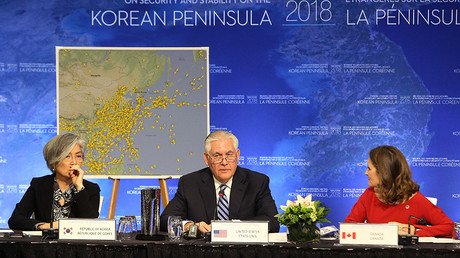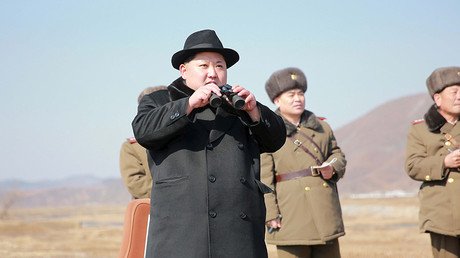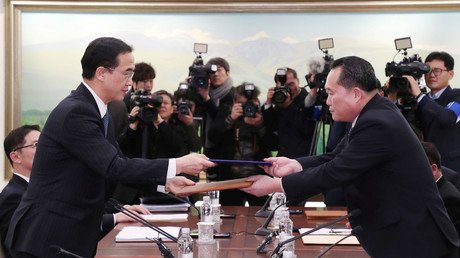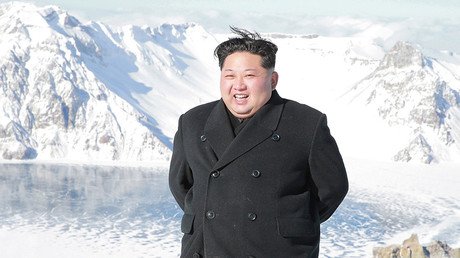Vancouver summit on N. Korea failed to provide alternative to Russian & Chinese proposals – Moscow
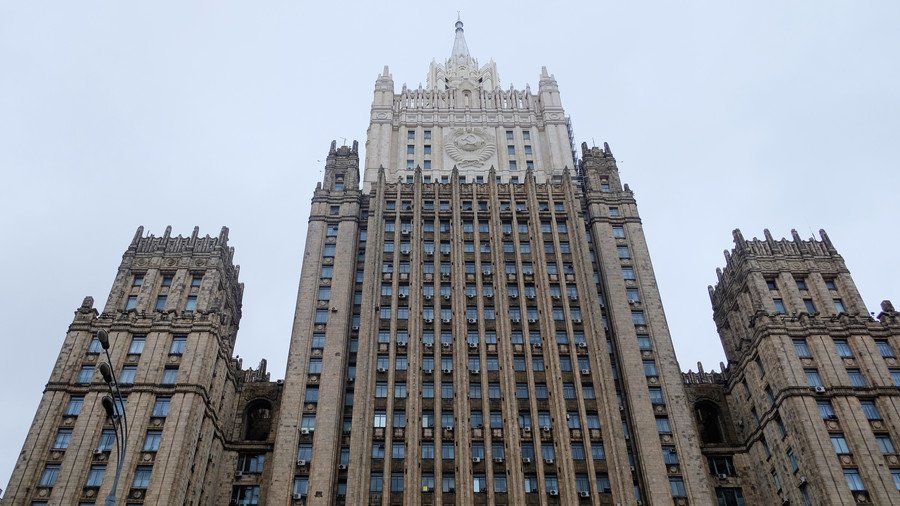
The joint US-Canada summit is just a “heavy-handed attempt” to undermine the decisions of the UNSC, Russia's Foreign Ministry has said. It added that the meeting failed to provide an alternative to the Russian-Chinese initiative.
Participants at the Vancouver summit failed to provide any alternative to the existing Chinese-Russian roadmap for easing the Korean knot, the ministry said in statement. It noted that instead of coming up with any “constructive” results, the gathering demonstrated “absolute disrespect” for the authority of the UN Security Council (UNSC).
What’s more, the decision to consider imposing unilateral sanctions against North Korea that overstep the demands outlined by the UNSC resolutions are “absolutely unacceptable and counterproductive,” the statement added. The ministry said further that a situation, in which some countries adopt roles as interpreters of UNSC resolutions without any permission or mandate – thus undermining the role of the UN – is “absolutely inadmissible.”
Back in July 2017, Moscow and Beijing put forward a proposal known as the ‘double-freeze’ initiative that envisaged the US and its allies halting all major military exercises in the region in exchange for Pyongyang suspending its nuclear and ballistic missile program. The initiative was, however, turned down by Washington – which was reiterated on Tuesday during the Vancouver summit.
The same day, the Russian Foreign Ministry again drew attention to the fact that the initiative is aimed at “resolving the entire range of problems [around the Korean Peninsula] solely through the political and diplomatic means.”
The Vancouver meeting, on the contrary, did not contribute to the normalization of the situation on the peninsula and only exacerbated existing tensions, the ministry said. Notably, neither Russia nor China was invited to the gathering despite being major players in the region as well as immediate neighbors of North Korea.
Earlier, Russian Foreign Minister Sergey Lavrov said that he was told Russia and China would only be “briefed” on the results of the meeting, calling such an attitude “unacceptable.” He also said that it would be a “great result already” if the meeting merely avoided leading to anything “counterproductive.”
Beijing also slammed the summit by saying that it had “not the slightest legality and representativeness.” It also accused the meeting participants of evoking Cold War ghosts. Pyongyang denounced the Vancouver summit as a “provocation" which is not helping the talks between North and South Korea.
In the meantime, US Congresswoman Tulsi Gabbard noted that it was the US regime change policy that prompted Pyongyang to develop its nuclear and missile arsenal in the first place. She turned to Twitter to call on Washington to put an end to such practices as well as to cast away “unrealistic preconditions” that the US government has been setting for decades to negotiate with North Korea.
